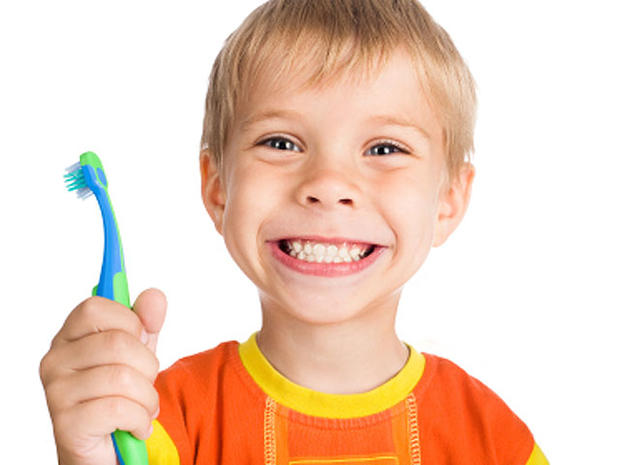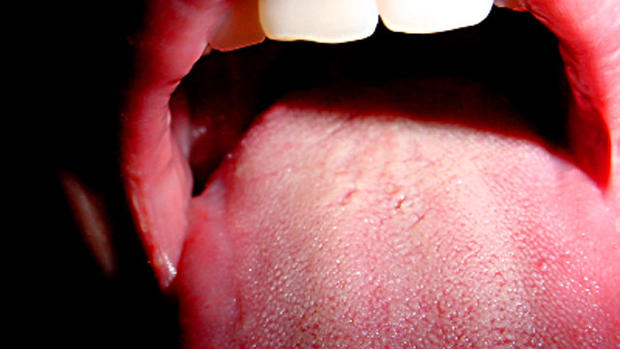"Smart bomb" mouthwash aims to end tooth decay: Will it work?
(CBS) Has tooth decay met its match?
PICTURES: Foul mouth: what yucky signs say about your health
Dentists are smiling over a new report that UCLA researchers have developed a new mouthwash that might make dental cavities go the way of the dodo bird, CBS Los Angeles reported.
For the study - published in the Nov. issue of the journal Carries Research - researchers tested the new mouthwash on 12 patients. After only one rinse, the mouthwash completely eliminated the S. mutans bacteria - the main cause of tooth decay. The patients were S. mutans-free for the entire four-day duration of the study.
How does the magic mouthwash work?
It uses a new antimicrobial technology known as specifically targeted anti-microbial peptides, or STAMP for short. The researchers developed it with financial support from toothpaste heavyweight Colgate-Palmolive. The lead researcher, Dr. Wenyuan Shi, calls the mouthwash a "smart bomb" since it eliminates harmful bacteria for an extended period of time.
"With this new antimicrobial technology, we have the prospect of actually wiping out tooth decay in our lifetime," Dr. Shi, chair of the oral biology section at the UCLA School of Dentistry, said in a written statement.
But how does this mouthwash differ from all those other antiseptic mouthwashes on the market? Don't they also fight cavity-causing bacteria?
Dr. Shi explained to CBS News that the mouth is a "true jungle," with over 100 trillion bacteria residing in it. But most of the bacteria doesn't cause tooth decay.
"99.9 percent of them are good guys," Shi said.
But most mouthwash products are "broad-spectrum" according to Shi, which means they wipe out all bacteria in the mouth. He compared that effect to how an herbicide kills both weeds and surrounding healthy grass. The "smart bomb" mouthwash targets and destroys S. mutans bacteria, leaving healthy bacteria that help protect teeth.
"We let the mouth grow grass, and we prevent the weeds from coming back," Shi told CBS News.
Shi said based on that principle, his lab's research might lay the foundation for developing more "smart bombs" to fight other bacterial diseases residing in the gut or nose.
But "smart bomb" mouthwash won't hit store shelves this year. Based on this study's success, researchers sent an approval application to the FDA with the hopes that more studies can start as early as March 2012. Shi said the researchers need to find out if the mouthwash's effects last for days, or even weeks. If approved, it will be the first anti-cavity "drug" licensed in nearly 60 years.
The last one approved? You may have heard of it - fluoride.
Dr. No-Hee Park, dean of the UCLA School of Dentistry summed up everyone's excitement over the research:
"We are proud that UCLA will become known as the birthplace of this significant treatment innovation."
Dental cavities are fairly common. More than 50 percent of kids get them, and 92 percent of adults get cavities in their permanent teeth at some point.
WebMD has more on cavities.

